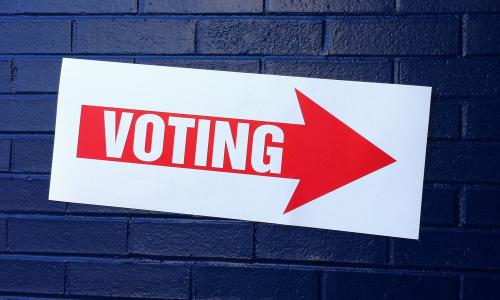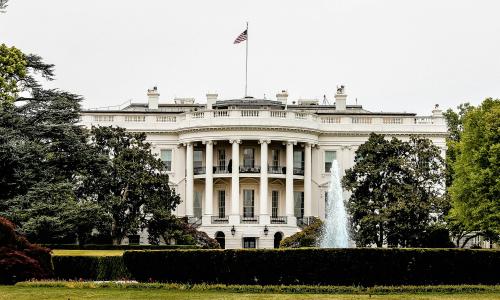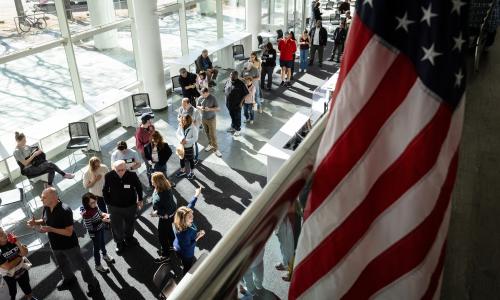With the release of the latest district data from the 2020 census, states nationwide have begun the process for redrawing districts—a process that will impact elections, and voters’ ability to be represented, for the next decade.
History has shown just how vulnerable this process is to political interests who focus on partisan or racially divisive gerrymandering. Politicians frequently draw rigged, unfair maps to try to reach a specific election outcome. With the onslaught of attacks on electoral integrity and the ability to vote in more than 30 states, we must guard against further attempts to erode our alarmingly fragile democracy.
Adding to the problem are the serious challenges in the 2020 census data of undercounting communities who are dealing with disproportionate health and safety challenges—and who already face voter suppression efforts.
That is why we must ensure a fair, transparent, science-based process for redistricting. This is a critical moment in our democracy; we need to ensure voters are able to choose their politicians, and not the other way around. The voice of science can be a critical tool to ensure that happens.
On-demand webinar: Click here for a recording of our August 24, 2021 webinar, The Census, Science, and Fair Representation.
How scientists and researchers can help
- Advocate for and engage in public input opportunities, underscoring the need for transparent, science-based methods of map development
- Be a critical voice in calling out legislation that is not evidence-based
- Support and participate in public mapping and ensuring that communities of interest do not have their voices diluted
- Use your skills in public-driven reviews of your states’ drafts maps to assess and call out bias or dubious methodologies
- Leverage your voice as a technical expert in the local media to encourage public participation and put your state’s mapmakers on notice that the community will be watching for a fair, transparent redistricting process
- Reach out to your state or city/town’s local group working to advocate for fair maps and ask if your unique skillsets can be of support
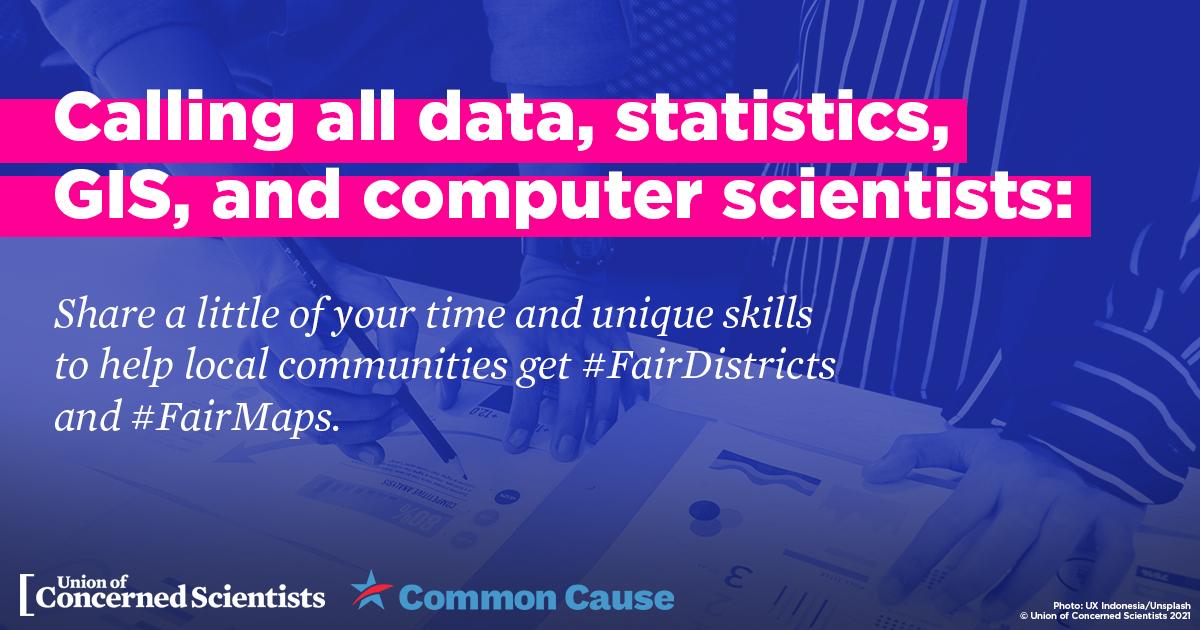
The Union of Concerned Scientists and CHARGE have teamed up to launch a Redistricting Scientists Bureau that connects scientists who can help with mapmaking & assessment with local organizers & communities of interest during this high-stakes redistricting cycle for fair representation in the next decade’s elections.
Volunteer will work with community partners to do spatial and demographic analyses of district boundaries and demographic data. To join this exciting new initiative just fill out this form to share a little information about your skills, interests, and availability. If you have any questions about the project or process, you can free to email Danielle at DFox@ucsusa.org.
Learn more
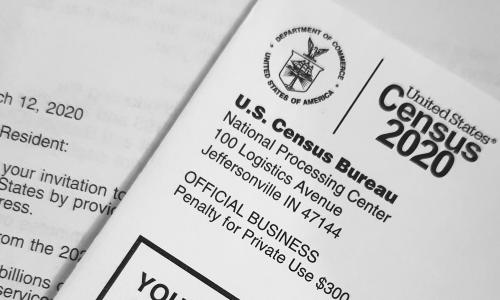
Census Redistricting
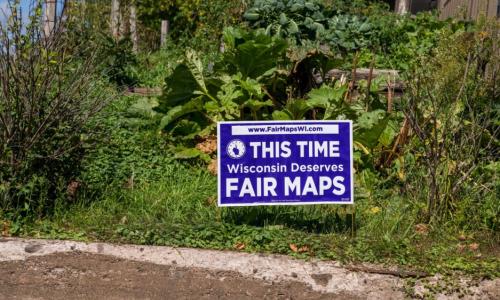
What the 2020 Census Means for Fair Representation

With Census Data Now Available, You Can Help Protect Democracy: Here’s How

Scientists Must Get Involved in Democracy Reform!
Share
Resources from our partners & allies
- See where your state stands with the Redistricting Report Card from the Princeton Gerrymandering Project, Electoral Innovation Lab, and RepresentUs.
- Track legislation with the state legislation tracker from the Voting Rights Lab.
- View 2020 census and election data, compiled by the ALARM Project, for use in map making and analysis
- Use the Redistricting Data Hub in research
- Many local community groups are using Districtr to compare their own maps against states’ draft maps for public accountability and to check for bias.
- CHARGE offers a “Redistricting Community College” curriculum, along with information about state-by-state processes and timelines.
- Engineers and Scientists Acting Locally have also compiled this list of resources.
